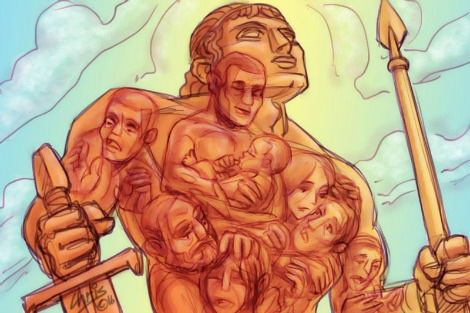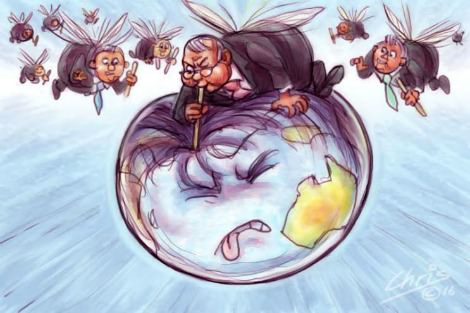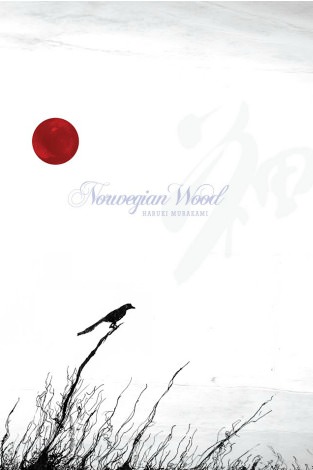Keywords: Japan
There are more than 200 results, only the first 200 are displayed here.
-

AUSTRALIA
- Kerry Murphy
- 11 November 2016
14 Comments
'We're not going to allow people who have sought to come by boat to come to Australia through a backdoor and we are not going to allow sham marriages to facilitate that,' said Peter Dutton. Given all the existing checks and hurdles, why have a ban? It would only affect about 2000 people; the other 35,000 who came by boat before 19 July 2013 or were not sent to Nauru and Manus Island are not affected. The true intention is to further punish the people we dumped on our Pacific neighbours.
READ MORE 
-

RELIGION
Two days after his election, the communications team of General Congregation 36 sat down with Father General Arturo Sosa to discuss his life and thought. The conversation introduces the new Superior General in a way that is more personal, to Jesuits and the wider Ignatian family around the world.
READ MORE
-

AUSTRALIA
- Adolfo Aranjuez
- 28 October 2016
10 Comments
After sending me to live in Australia, my father tasked my then brother-in-law (a true-blue 'bloke') with teaching me to 'be a man'. He failed, but here was evidence of hegemonic masculinity's perpetuation. My father and I were born into a masculine culture that, unlike Australia's stoicism, is characterised by braggadocious chest-puffing. Yet underpinning both Australia's and the Philippines' conceptions of masculinity is the masking of vulnerability: emotions hide behind silence and bravado.
READ MORE 
-

EDUCATION
- Peter Hosking
- 19 September 2016
3 Comments
Australia is now planning for an economy that has more elderly people. Death rates are declining and life expectancy is increasing. Our population should reach 36 to 40 million by 2050; the number of Australians aged 65 and over will go from 3.5 million to 9 million. In 1970 we had 29 per cent of the population under 15 and 8 per cent over 65. In 2050 we will have about 17 per cent under 15 and 23 per cent over 65. We need to plan to help the next generation care for the generation above them.
READ MORE 
-

AUSTRALIA
- Joan Hume
- 08 September 2016
15 Comments
On 26 July this year of 19 severely disabled residents were massacred as they slept in their beds at a residential care facility in Sagamihara, Japan. A further 26 were wounded. The perpetrator, Satoshi Uematsu, a former employee sacked for his disturbing views about the residents, later boasted of his 'achievements': 'It is better that disabled people disappear.' Isn't there an ever present probability that without an inclusive and accepting community, without believing in our possibilities rather than seeing only our limitations, we will spawn the likes of another Satoshi Uematsu here?
READ MORE 
-

INTERNATIONAL
- Jim McDermott
- 24 August 2016
5 Comments
Maybe standing there we weren't afraid about the fight that was happening across the street, but the fraying at the edges that it represents, the insecurity that the gospel both of Trump and against Trump seems to be creating in our society. It echoes the insecurity we hear in the Brexit vote, and the treatment of both ethnic British citizens and immigrants that followed. Likewise, the resurrection of Pauline Hanson and her One Nation party. None of it sounds good and where is it all going?
READ MORE 
-

INTERNATIONAL
- Jeremy Clarke
- 17 August 2016
3 Comments
Horton desired to highlight the need for more stringent application of doping policies but in the process he enabled Chinese nationalists to bolster their inflated national pride, at his and Australia's expense. That he used his concern about drug use as a competitive tactic lessened its effectiveness, and only enabled Chinese nationalists to once more don the mantle of victim. Any chance for reform around issues like drugs in sport got caught in the wake of wounded egos and jingoistic pride.
READ MORE 
-

ARTS AND CULTURE
- Rodney Wetherell
- 07 June 2016
2 Comments
In prayer, our minds are sex-free, let us hope; our thoughts of God do not include the body, his or ours, svelte or chunky, erotic perfume should be undetectable, ditto the sense of orgiastic writhing sent down to us from digital porn heaven. Should your inner eye pick out an angel, beautiful, and fixing eyes on you, or Jesus wearing little but a wisp of cloth across a gym-toned body streaked with blood, contact your counsellor, ring that number - you've wandered to the opposition site.
READ MORE 
-

ECONOMICS
- David James
- 18 April 2016
11 Comments
Three finance-related events are currently gaining great attention in the media. One is the so-called Panama Papers. Another is the proposal to have a royal commission into the banks. And a third is the furore over the unaffordability of homes and the debate over negative gearing. On the surface they would seem to be quite separate issues. But all three issues demonstrate yet again that banks are, if not the most malign organisations on the planet, then certainly among the most dangerous.
READ MORE 
-

ARTS AND CULTURE
- Ellena Savage
- 19 February 2016
5 Comments
There's a part in Murakami's Norwegian Wood, I told a friend, where a character loses someone, and walks for weeks around Japan until he reaches the beach, where he just stares out to sea. I feel so desolate, I said, that that's what I want to do. I don't know for sure that that's what really happened in the book, or if I was really that desolate ... Maybe that's what reading is for; to build a repertoire of emotional and social situations in order to connect with feelings that don't have words.
READ MORE 
-

ECONOMICS
- David James
- 19 January 2016
11 Comments
Low interest rates tend to change the understanding of risk; having high debt seems to be less of a problem because the cost of servicing it is lower. This cavalier attitude has been especially evident in Australian households, which have racked up more debt relative to the size of the economy than any other country in the world. The massive appetite for debt has been replicated across the globe. The world may have survived the era of casino money - just - but it is now facing another crisis.
READ MORE 
-

ARTS AND CULTURE
- Diane Fahey
- 19 January 2016
2 Comments
They'd stopped by then, your half-filled crosswords with their fey surmises — inspired leaps from the backs of routine clues ... I glimpsed alcoves of dusty treasure: kris — 'Malayan dagger'; obi — 'a Japanese sash'; écus — 'old French coins'. You summoned bird names from the air: rhea, erne; had the secrets of ponds and streams at your fingertips: eft, orfe, elver ... 'open', 'small seeds'; six letters. You would have got that.
READ MORE 